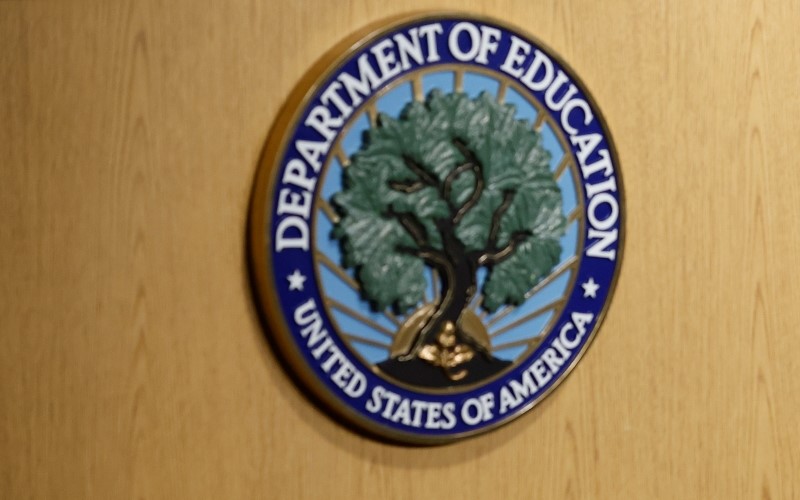
Experts recommend various reforms of Title IX regulations to protect against harassment of students.
As you are reading this, there are over two thousand Title IX cases under investigation.
Title IX plays a pivotal role in promoting gender equity in education. The law prohibits sex-based discrimination in any educational program or activity that receives federal funding. Over the years, Title IX has addressed issues such as sexual harassment, gender-based violence, and equal athletic opportunities for women.
Title IX has been subject to ongoing debate and scrutiny, however, with various administrations proposing changes to the regulations.
Last year, on the 50th anniversary of Title IX, the U.S. Department of Education proposed a rule change. The proposed rule seeks to “clarify the scope and application of Title IX” to prevent sex discrimination in education and further outlines procedures for responding to incidents.
Advocates for Title IX reform note that the proposed rule could strengthen existing protections for students and expand new protections to LGBTQ+ students experiencing discrimination. Others contend, however, that the language in the proposed rule should go farther to address gender identity in athletics.
Earlier this year, the Education Department answered their call. A new proposed change to the regulation would prohibit schools that receive federal funding from limiting or denying “a student’s eligibility to participate on a male or female athletic team consistent with their gender identity.”
Gender identity has become an increasingly salient topic around the country. Some Republican state lawmakers passed bills to limit which bathrooms transgender people can access, and the Supreme Court recently issued a temporary order allowing a transgender girl in West Virginia to compete on her middle school girl’s track team.
The Biden Administration’s proposed rule was met with mixed reactions from both transgender activists and Republican legislators. Some reformers argue that the proposed change amounts to a “betrayal” of transgender athletes in high school and college. For example, while the rule provides some protections against excluding transgender athletes in elementary schools, it does not explicitly provide those same guarantees to older transgender athletes. In addition, some critics of the proposed rule assert that the Biden Administration lacks the legal authority to enact the regulation.
After receiving more than twice as many public comments as previous proposals, both proposed rules are still under review.
Beyond gender equity, other facets of Title IX are hotly debated, including how best to determine the guilt of alleged sexual harassers on college campuses and how to account for intersectionality.
In this week’s Saturday Seminar, scholars discuss these questions and what the future of Title IX regulations may hold.
- In an article for Marquette Sports Law Review, Rexford Sheild of Dentons LLP assesses regulatory changes to Title IX and expresses concern over political affiliations impacting regulations. To combat sexual harassment, assault, and violence across college campuses, Sheild calls for “a sensible, moderate approach, without political theater.” Sheild recommends that institutions take a substantial step to increase staff dedicated to dealing with Title IX claims. He further expresses the need for live hearings, while asserting the need for discretion on cross-examination to protect against re-traumatization. Sheild argues that these approaches would provide greater protections for both the accused and accusers.
- In an article in California Western Law Review, Kelsey Scarlett and Lexi Weyrick argue that regulation of educational institutions under Title IX has neglected students with intersectional marginalized identities. Scarlett and Weyrick explain that marginalized students, including Black, Indigenous, and women of color, experience sexual misconduct at disproportionate rates compared to non-marginalized students. To address these disparities, Scarlett and Weyrick suggest that the Education Department should gather data on the unique needs of each campus community to determine if disciplinary policies contribute to the erasure of marginalized students’ experiences. Scarlett and Weyrick also contend that the Education Department should replace its retributive responses to discrimination under Title IV with transformative justice principles.
- Applying criminal law and procedure to Title IX proceedings hinders the purpose of Title IX, explains Nancy Chi Cantalupo of Wayne State University Law School in an article for Roger Williams University Law Review. Cantalupo argues that the Education Department should employ a civil rights approach to sexual harassment in education instead of a criminal approach. She notes how racial and sexual harassment have different evidentiary standards, so when the two forms of harassment happen to the same person, the investigations could conflict. As a result, Cantalupo explains, the Education Department would have to decide whether to investigate the victim as a woman or as a person of color. Cantalupo proposes a reassessment of Title IX, insisting that the current changes “have nothing to do with advancing racial justice or gender justice.”
- Although the Biden Administration’s proposed rule for Title IX is significant progress towards a more intersectional statute, more training for school employees on intersectional identities is needed, argues Kelsey Scarlett in an article in Boston University Law Review. Intersectional training, Scarlett suggests, ensures that schools monitor barriers to reporting and increase decision-makers’ awareness of the unique ways that communities of color experience sex discrimination. Without this training requirement, the proposed rules do not protect marginalized communities because decision-makers will not comprehend the extent of their problems, describes In addition, Scarlett recommends that the Administration provide universities with guidance on the informal resolution process, which would help school administrators support students who do not seek to file a formal complaint.
- In an article for Cardozo Journal of Equal Rights and Social Justice, Kenneth Lasson from the Baltimore University School of Law highlights the role of race in Title IX prosecutions. When accused of sexual misconduct, men of color, especially students from overseas, are susceptible because they do not benefit from white male privilege and have less access to essential resources, describes A Nigerian native student at Harvard University, for example, alleged that the university’s sexual misconduct policy violated due process because he was unable to appear at the hearing, challenge witnesses, or consult a lawyer, explains Lasson. The Title IX investigation approach could result in systemic problems affecting both men of color and women being overlooked, suggests Lasson.
- Debates about the scope of Title IX have diverted it from fulfilling its core goal of ensuring equal access to education based on sex, Naomi Mann of Boston University Law School argues in an article in the Boston University Law Review. Policymakers should reimagine Title IX to increase incentives for students to report sexual misconduct and for schools to respond appropriately to students’ reported data, Mann contends. Part of building these incentives, Mann explains, involves designing procedures that are less litigious and adopting policies that prioritize educational goals centered around equal access. Furthermore, the Education Department should encourage schools to develop intersectional approaches to campus sexual assault, Mann urges.
The Saturday Seminar is a weekly feature that aims to put into written form the kind of content that would be conveyed in a live seminar involving regulatory experts. Each week, The Regulatory Review publishes a brief overview of a selected regulatory topic and then distills recent research and scholarly writing on that topic.



